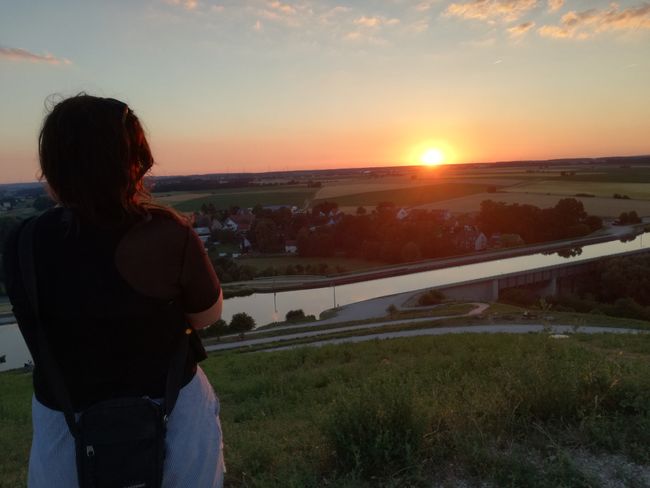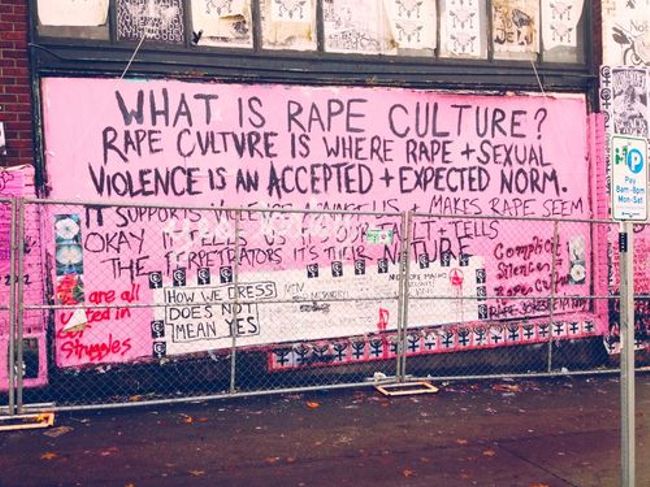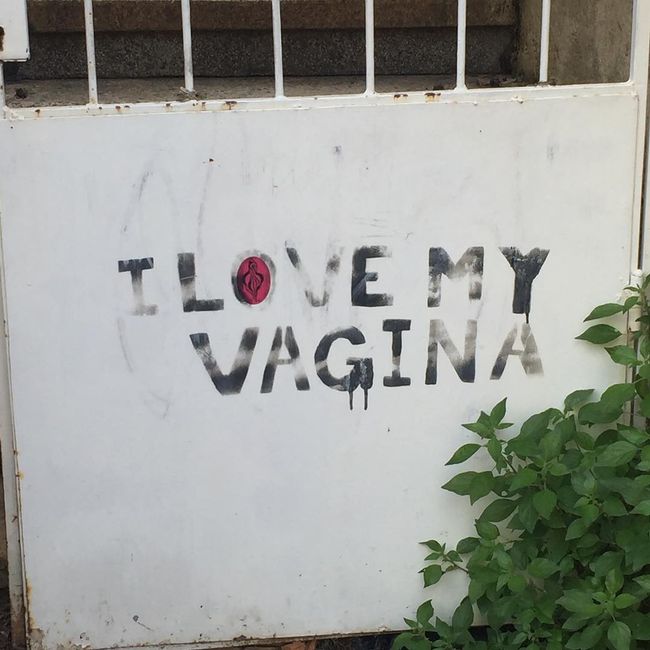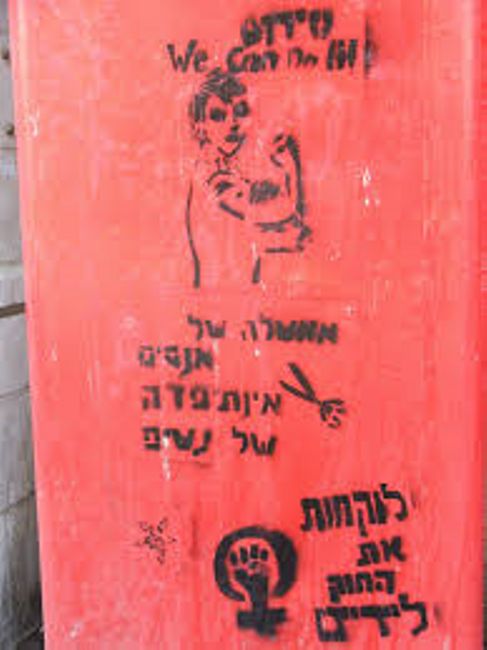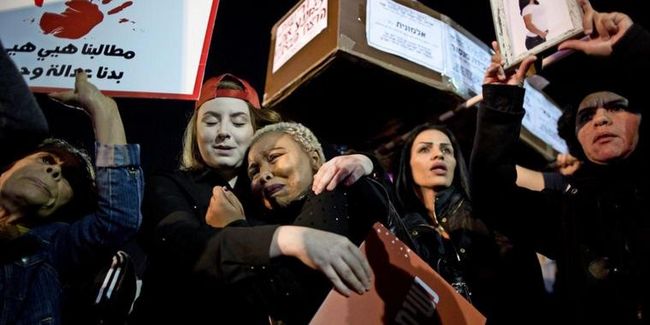Between Queer Feminism and Intersectionality
Publicatu: 16.03.2019
Abbonate à Newsletter
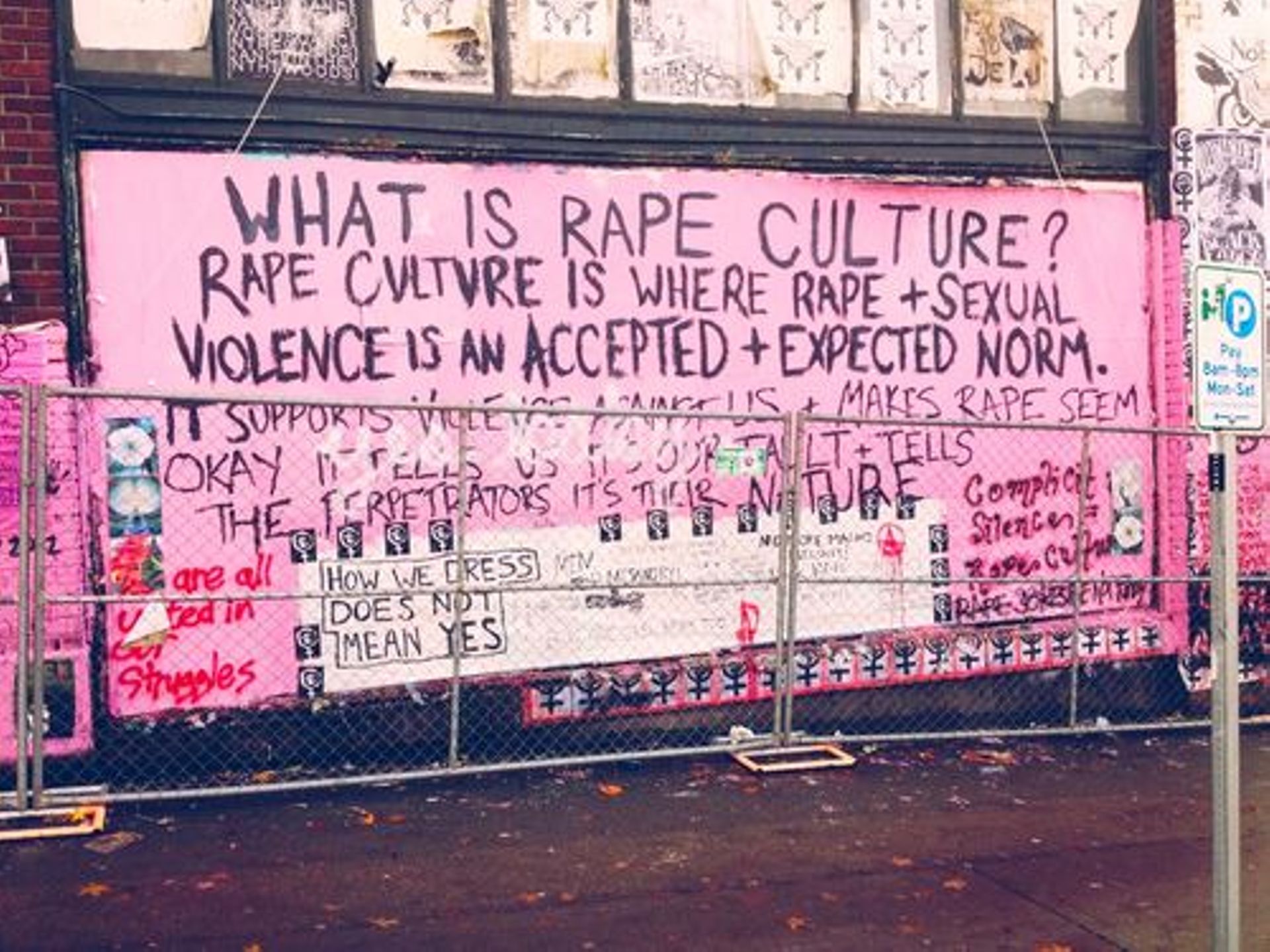
'In March of last year, I examined feminism in the West Bank in relation to the preparatory seminar for my year abroad in Palestine. Even then, it was difficult to find meaningful literature on this topic in today's time. While there is a lot of literature on intersectional feminism and Islamic feminism, and also a lot of literature on Zionist feminism in relation to Israel, there is little literature specifically on feminism in the Palestinian Autonomous Territories.
Therefore, I would like to first delve into my personal understanding of intersectional feminism. As a "white," privileged woman with a German passport, it is somewhat cynical for me to write about feminism in Palestine, or about other women* or potentially PoC women* and draw conclusions from a 6-month experience abroad. Therefore, I can only report on personal experiences and provide definitions of the respective specialized terms, but I cannot offer much factual academic literature on the specific topic of "feminism in Palestine".
First and foremost, it is important to shed light on intersectional feminism.
So often, the first rows of feminists worldwide consist of women* who have certain privileges over other women*. This metaphorically means, for example, that a white, healthy, educated woman* may experience less discrimination than women* who do not meet these criteria.
And even though, due to personal experiences here, I often reproduce discrimination based on patriarchal social norms, the discrimination of women* in Palestine extends beyond that. Here, factors such as skin color, religion, disability, age, chronic illness, obesity, poverty, or LGBTQ* identity play a role. Just like in Palestine, in any other part of our patriarchal world, multiple points of potential disadvantage can overlap in an individual.
So, sexism also means that people are reduced to stereotypes and are socially disadvantaged based on these stereotypes. Intersectionality can also help strengthen feminism here. It is a call for each and every feminist to examine themselves. I must constantly examine myself and ask what privileges I have and if I may potentially be part of the oppression. In most situations, this is of course directed towards other women* who live in even more precarious circumstances and are therefore even more vulnerable.
And even though I am aware of the importance of intersectional feminism. Even though I proclaim it as my own. Even though I read literature about it and preached it thousands of times, I run the risk of unconsciously reinforcing anti-Muslim sentiments with my experiences and personal stories. Nevertheless, it is important for me not to practice "White Feminism" while also not ignoring reality. It is a reality that not only Islamic associations in Germany, such as Ditib, IGMG, or Atib, but also Islamic structures in the West Bank itself, are structurally nationalist, hostile to women* and queer people, and clearly anti-Semitic.
Another problem that catches my eye is that the issue of the role of women* and queerness in the West Bank/Palestine is not only neglected in political Islam, but is also a blind spot across the board. It is not treated as if there were no patriarchal problem. As if there were no sexism against women*. As if there were no structural hostility against LGBTQ* individuals in the West Bank.

The murder rate in non-Jewish communities in Israel is significantly higher than in Jewish communities. According to a report by the Knesset in February of this year, there were around 100 murders annually between 2014 and 2017. 64 percent of the victims were non-Jews.
Randa Siniora from the Women's Centre for Legal Aid and Counselling, for example, not only criticizes the occupation but also the perverse "culture" of honor killings, as well as cover-ups. The number of unreported cases is likely to be enormous. Many murders of raped women*, which bring "shame" to their families, simply go unreported. The police in the Autonomous Territories make little effort to solve these crimes.
In Israel itself, however, things are changing. Nine Arab communities joined the nationwide protest strike against violence against women* in December 2018. This can be interpreted as a leap in awareness. It is also worth noting that education and employment levels are increasing, while the birth rate has decreased in recent years, from 4.3 in 2001 to 3.1 per woman* in 2013. Over 40 percent of Palestinians have a job. That is still only half as many as Jewish women*, but it is still a significant number compared to most Arab countries. In Egypt, for example, the employment rate for women is 23 percent. However, it is important not to overlook the economic exploitation of women* when mentioning these numbers.
In my personal assessment and experience, I can unfortunately confirm many things. Honor killings have become more frequent in the West Bank. Just last week, a brutal murder of a woman* occurred. Especially Palestinian men*, whom I confront with questions about these murders, try to cover up the problem of violence against women*. Asking about violence against women* in the West Bank is initially seen as an attack on the honor of men* and Palestinian identity. In fact, according to cis-male residents themselves, there seems to be no violence against women*. Unfortunately, statistics and official data prove otherwise.
Personal experiences also show me the role that women* play in Palestinian society. Sexism and sexual assault, blame towards my gender, and other mechanisms of oppression are also part of my everyday life. The first time I felt bad about being a woman*, I wanted to hide and avoid public spaces due to the patriarchy. Sexism and mechanisms of oppression were present in every place, and the women* who resist them are often considered crazy by society. Now, when considering intersectional sexism, I also questioned whether I even have the right to defend myself. As a privileged white woman*, am I allowed to shed light on the patriarchy in Palestine? Should I mention the problem by name, or is this the task of Arab/Palestinian women*? But even just asking myself this question, "Whether I am allowed to defend myself," shows the absurdity and the role I feel pushed into here. Of course, as a woman*, I am always allowed and encouraged to resist male mechanisms of oppression.
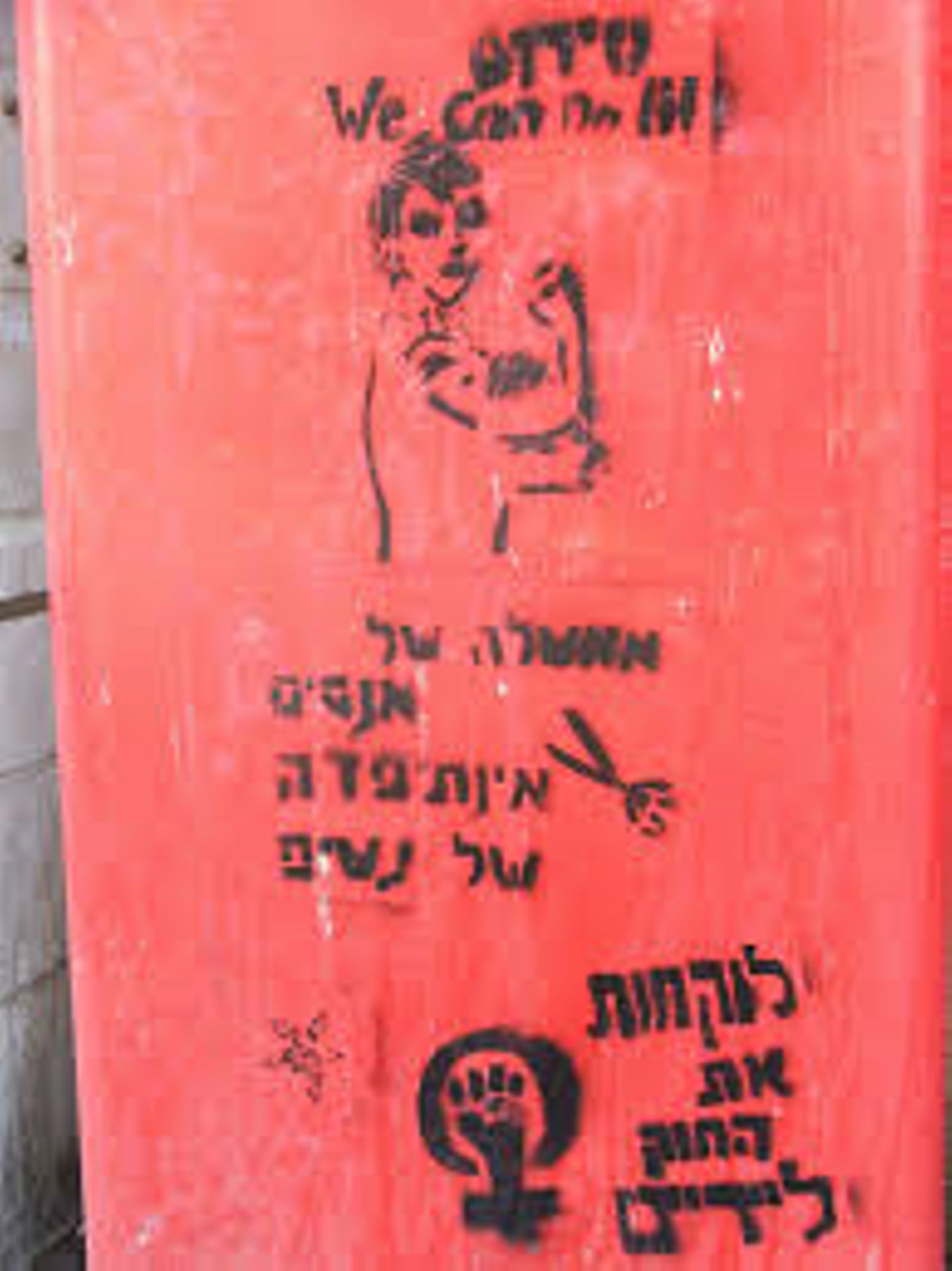
Nevertheless, it is always important to note that the oppression of women* in the patriarchy, regardless of where it is in the world, is always complex. It operates through inequalities on several levels: the state, the law, the family, the workplace. The patriarchy is maintained by influential cultural norms and supported by traditions, education, and religion. Of course, I can agree with Palestinian feminists who assert that patriarchy is also supported by occupation and imperialism. And at the same time, it is supported by religion and tradition. Any other claim would be absurd. Because patriarchy reproduces itself endlessly through the mentioned norms and structures, which are inherently patriarchal, which is why it appears natural or inevitable time and time again.
Another point that can be endlessly elaborated on is the difference between Israeli feminist movements and Palestinian feminist movements. While there are sometimes overlaps and efforts by women* to work together to combat patriarchy, it is important to note that the goals of the individual feminist movements differ greatly. One common point is actions against violence against women*, such as the nationwide strike in December. According to the organizers, at least 20,000 people gathered on the central Rabin Square in Tel Aviv. Demonstrators blocked major intersections. Women* held signs in Hebrew and Arabic that read, "Women are being killed, the government remains silent." Numerous people also protested in other parts of the country. In Jerusalem, for example, demonstrators sprayed red paint on a street where signs with the names of murdered women* lay. Around 300 companies and public institutions supported the protests. Some companies gave women* time off to participate in the demonstrations.
Another project that unites women* in Israel and Palestine is the "March of Hope," which reached its political climax in 2016. Thousands of Jewish and Arab Israelis gathered in front of Prime Minister Benjamin Netanyahu's residence in Jerusalem to demonstrate for peace. The demonstration marked the end of their approximately 200-kilometer-long "March of Hope," which began two weeks earlier in northern Israel. The women* started their march to Jerusalem in the town of Rosh HaNikra on the Lebanese border. In Kasr al-Jahud on the Israeli-Jordanian border, they met about 1,000 Palestinian women* and hundreds of Jordanians on the other side of the border. Additional demonstrators joined them when they arrived in Jerusalem. The organizers estimated a crowd of around 10,000 participants.
Personally, there are many associations like the "March of Hope" and other actions that are often religiously oriented. A radical feminism that unites Palestinians and Israelis is almost non-existent. Furthermore, most feminist efforts in Israel and Palestine do not aim to abolish patriarchy but primarily focus on peaceful coexistence of the nations and often an end to the occupation.
Nevertheless, I personally miss mentioning the problems that I consider to be impactful. The mention of the economic exploitation of Arab women*. The mention of the steadily increasing domestic violence against women*, not only in the West Bank. The mention of sexual harassment in public spaces. The mention of patriarchal family structures that sometimes do not allow women* to sit alongside men* in university. The mention of significant transphobia and homophobia. The mention of pervasive mechanisms of cis-male oppression, which are certainly influenced by occupation and imperialism, but are also reinforced independently by religious norms and values. Therefore, it is important for me to stand up for intersectional feminism, which means attacking patriarchy while also checking and reflecting on my own privileges as a white woman* in the Middle East. At the same time, I would never defend backward religious values that oppress people. Examining feminism in the Palestinian Autonomous Territories as a white woman* with significant privileges remains an endless cycle full of pitfalls. One thing is clear: patriarchy sucks - always and everywhere!
Abbonate à Newsletter
Rispondi

